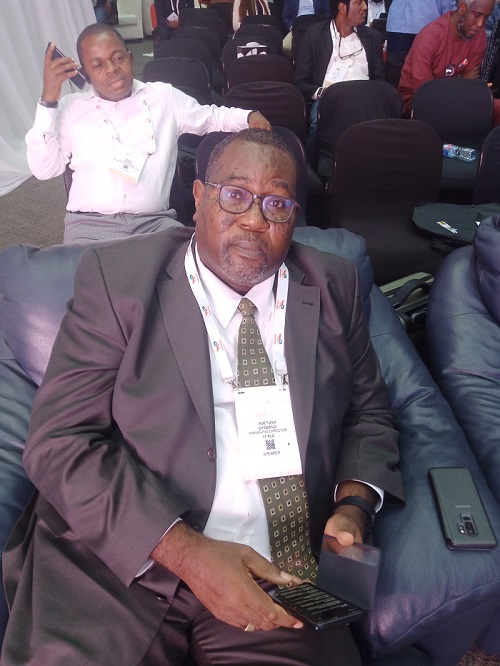Mr. Adetunji Oyebanji, MD, 11Plc
-By Felix Douglas
Nigeria transport system relies on Premium Motor Spirit (PMS), but with subsidy and regulated environment, it becomes difficult for objectives to be attained. How can reliance be reduced moving forward is a hard nut to be cracked.
Immediate past Chairman of Major Marketers Association of Nigeria (MOMAN) and Managing Director of 11Plc, with over 35 years in petroleum downstream operations, Mr. Adetunji Oyebanji, shared his thoughts on PMS reliance in Nigeria’s transport system that the debate around PMS and gasoline is emotional in the country.
He spoke at a panel session on downstream and transportation at the Nigeria Oil and Gas Conference held in Abuja.
In his words: “I often tell people that when a problem is basically an economic one, but you try to use political means to solve it, you will only have a temporary solution and it is never sustainable because ulitimately the economic fundamentals will always keep rearing their heads and you have to keep waiting for ways to press them down but very persistence you cannot run away from them.”
Oyebanji added that there is always a disconnect in emphasising on the transport system. In terms of movement of goods and services to a large extent is being driven by diesel and mass carriers which have to do with inter state busses, lorries and other means within the system are driven by diesel.
PMS is only a driving force mostly for private cars and smaller transport system such as taxes or motor bikes. Therefore, what really affect prices with the cost of diesel and the significant hike in price of the product is inherent within the system.
The former MOMAN Chairman said there is a huge deficit between the governed and government in terms of subsidy because the people felt it is the only benefit they get from the government and it can’t be taken away from them.
He said he urged his employees to maintain spartan life style due to current economic situation in the country. He maintained that government should work the talk because it cannot be operating at a certain level without demonstrating deliberate attempt to reduce the cost of governance. It cannot convince people to reduce cost of living without reducing cost of governance.
The country lost several opportunities to do step-by-step adjustments until the movement in international prices became an issue costing huge deficit and government scrambles to fill the gaps. “The response that we get when there is sufficient local refinery capacity which has been the conversation for many years meanwhile the bleeding continues.”
Oyebanji stated that while the country seeks for solution in its downstream, it has to put the sector in order. Thus, “Massive investments in mass transportation is key, talking about ferries and railway lines. For example in Malta, there are Islands and every hour, there is a huge ferry that can take up to three to four hundred cars. Take a place like Lagos, imagine a ferry that move two or three thousand people with about three hundred cars tranversing between Ikorodu and Epe moving people every hour. That will take off cars from the roads and help people.”
Speaking further he said: “Look at how long it is taking us to even develop a rail system within Lagos with a huge population. All these could have been done in a much easier way that will reduce PMS where people put their cars on the roads on daily basis.”
The 11Plc MD, former Mobil Oil, a foremost downstream company in Nigeria made it known that there is need for significant investments in other alternative sources like Compress Natural Gas (CNG) and Liquefied Petroleum Gas (LPG) but the economics has to work because PMS cannot be cheap and nobody will make significance investment if it remains a cheaper source of energy.
Other solutions to bring to the fore include fuel vouchers for the less vulnerables including social investment programmes and having designated fuel stations where prices are cheap.
Deliberate actions in terms of encouraging use of alternative solutions by having proper fiscal framework. This has time frame for it to work. In the interim, there is need for effective communication to work the talk for people to trust the system to be beneficial to them without being short changed.


Comment here